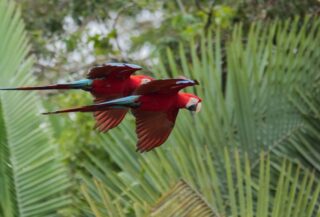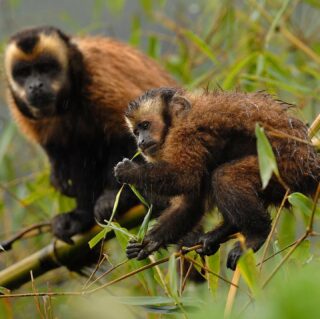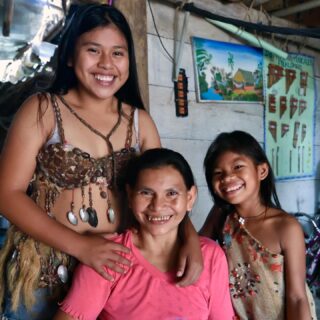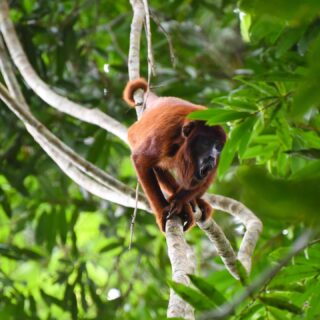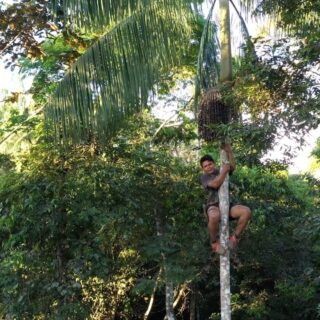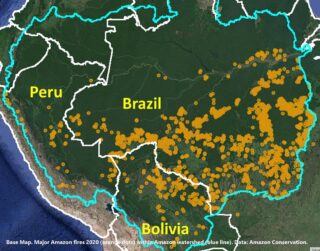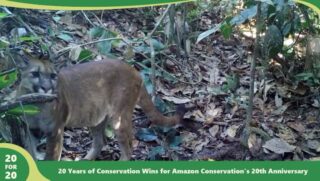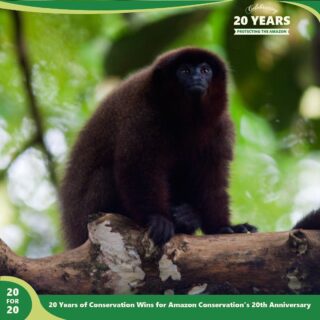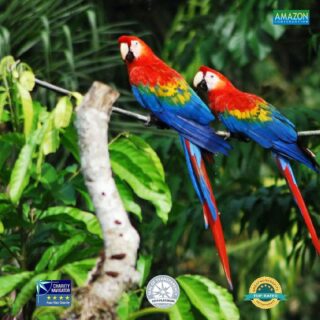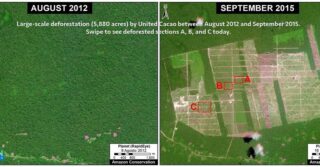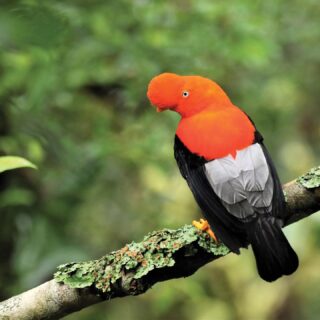How Indigenous Women’s Leadership Marks a Step Forward for Conservation
February 1, 2024
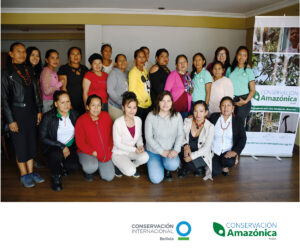
On December 11th, our Bolivian sister organization Conservación Amazónica – ACEAA coordinated the first-ever meeting for the indigenous women’s exchange of experiences focused on entrepreneurship. Women from 4 indigenous nations (Tacana, Leco, Mosetén, and Chiquitano) in the lowlands of Bolivia shared their knowledge about the management of their territories, opportunities, and challenges they face as women in different leadership positions in their communities.
This event was organized to strengthen the leadership of indigenous women as essential social actors in forest conservation. As discussed during the event, many prioritize activities related to caring for their families, thus emphasizing the importance of creating a safe environment. Among their communities, they also play the role of transmitter and preserver of culture, and by understanding this crucial social role of women, their representation and position in leadership is essential for maintaining balanced social development that coexists with the environment (in this case, the forest).
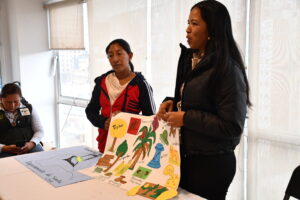 However, for women to have this leadership role, they need economic independence to support themselves and their families. For this reason, this event also had an entrepreneurship focus to strengthen their knowledge on how to establish a business and create a network to support the enrichment and experiences they share mutually. The chiquitano women from Palmarito de la Frontera Women’s Association Searching for New Horizons shared their experience with their venture with Amazonian Cusi oil, how they work among all the women, the different roles they have agreed upon, and the potential and growth that they had due to the support of organizations. The participants also received guidance from a specialist who trains and strengthens the skills of artisans and indigenous peoples by understanding cultural research, and product development, and creating a dynamic methodology adapted to their functionality.
However, for women to have this leadership role, they need economic independence to support themselves and their families. For this reason, this event also had an entrepreneurship focus to strengthen their knowledge on how to establish a business and create a network to support the enrichment and experiences they share mutually. The chiquitano women from Palmarito de la Frontera Women’s Association Searching for New Horizons shared their experience with their venture with Amazonian Cusi oil, how they work among all the women, the different roles they have agreed upon, and the potential and growth that they had due to the support of organizations. The participants also received guidance from a specialist who trains and strengthens the skills of artisans and indigenous peoples by understanding cultural research, and product development, and creating a dynamic methodology adapted to their functionality.
Based on the previous analysis of their territory management, sustainable practices, and the potential use of the non-timber forest products for entrepreneurship, many of these women also identified and presented the threats that surround them, such as activities related to mining which contaminate bodies of water and affect the overall health of indigenous families. Furthermore, forest fires caused by uncontrolled burning seriously affected parts of their land and the forest, flora, and wild fauna part of its identity, especially in 2023. These losses combined with the constant threats have an impact on the lives of indigenous women and their families in their daily relationship with their territories, reflecting their vulnerability to these threats.
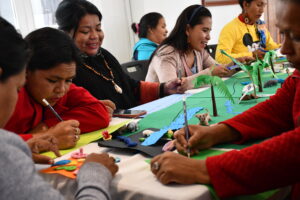 Aside from environmental threats, many of the women also reflected on their community norms that continue to make women’s rights invisible, as well as an analysis of the historical role of indigenous women participating in the fight for land, territory, natural resources, and for the self-determination of their people. While the women of Tacana II recognized that they had support from the men of their communities to exercise leadership as women, other participants shared that it continues to be a challenge to demonstrate the importance of women exercising these leadership roles and representing the voices of other women.
Aside from environmental threats, many of the women also reflected on their community norms that continue to make women’s rights invisible, as well as an analysis of the historical role of indigenous women participating in the fight for land, territory, natural resources, and for the self-determination of their people. While the women of Tacana II recognized that they had support from the men of their communities to exercise leadership as women, other participants shared that it continues to be a challenge to demonstrate the importance of women exercising these leadership roles and representing the voices of other women.
After two successful days of discussion and training, these women decided to form a Network of Indigenous Women Entrepreneurs, allowing them to continue strengthening their leadership, and open doors to opportunities for more women and girls. Despite a few obstacles, they plan to continue the fight for equal rights between men and women. As many of the women expressed their gratitude for the coordination of this event and the opportunity to meet and get to know each other, they also asked that the NGOs “not forget” about them or their territories, ambitions, and their desire to continue strengthening this network and the established ties.

